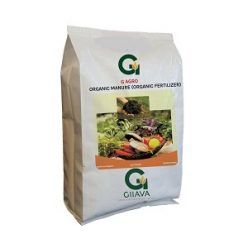- Vegetables
- Flowers
- Fruit
- Lawns
For more details contact us here: +91-9359108924
Category: FYM
- Description
Description
Description
While Vermicomposting is generally known as a nutrient rich source of organic compost used in farming and small scale sustainable, organic farming, the process of vermicasting is being studied as a treatment for organic waste in sewage and wastewater plants around the world.
- Vermicompost minimizes the incidence of pest and disease and enhances the decomposition of organic matter in soil.
- Provides excellent effect in overall plant growth, shoot and root development.
- Goods for terrace garden, balcony garden, lawns, vegetables, flowers, fruit. Also acts as a pest repellent and even provides systemic resistance to the plant.
- Compost (beneficial microbes and with great water holding capacity and nutrient content).
- 75 to 125 gms for roses and flowering plant.
- 250 to 500 gms for fruit tree.
- 500 gms for lawns.
- 2 ton/ha in three splits in Monsoon, Winter & Summer season.
- Pest Suppresition : Similar to its effect on pathogens, vermicompost does not kill or repel pests, but can help stave off attack.
- Pathogen suppression : Vermicompost does not kill pathogens in the soil, but rather keeps the pathogens from becoming virulent and attacking your plants.
- Nutrient Delivery : Vermicompost, in comparison to conventional compost, normally possesses higher levels of plant-available nutrients, particularly nitrogen and phosphorus.
- Increased Microorganism Populations : Vermicompost can be a thriving microbial community, full of beneficial fungi and bacteria that aid in soil health.


